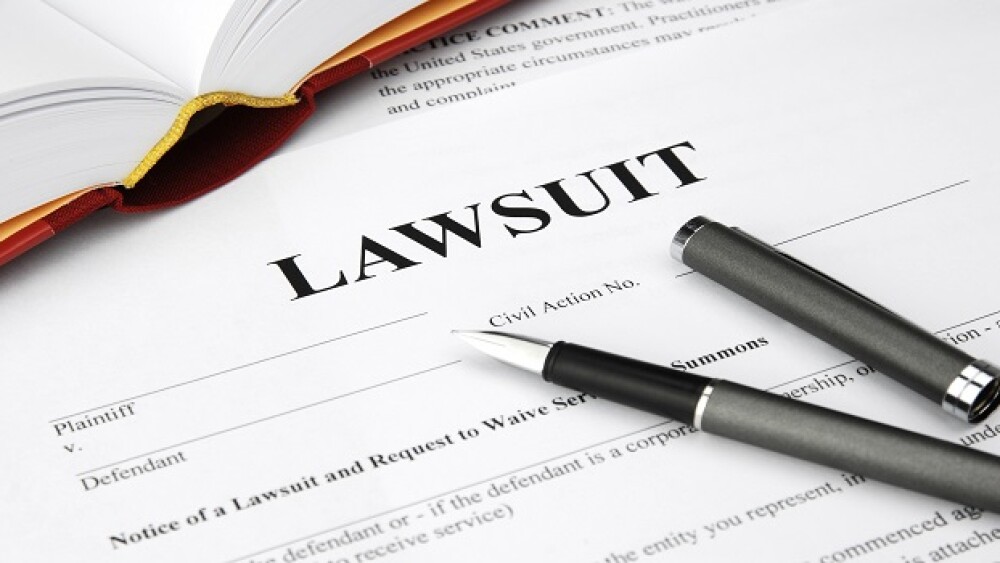Elizabeth Holmes and beleaguered Theranos finally caught a break. Last week U.S. Magistrate Judge Nathanael Cousins shot down the hopes of some investors in filing a class action lawsuit against the company.
Elizabeth Holmes and beleaguered Theranos finally caught a break. Last week U.S. Magistrate Judge Nathanael Cousins shot down the hopes of some investors in filing a class action lawsuit against the company.
Cousins ruled that investors who argued Theranos and Holmes defrauded them into “investing indirectly” in the company will not be able to pursue those claims in a class action lawsuit. A group of more than 200 people sought to file a class action lawsuit against the medtech company that has been hit with multiple allegations of fraud, including one from the U.S. Securities and Exchange Commission. Reuters reported that the investors all acquired shares between July 29, 2013 and Oct. 5, 2016. From 2013 to 2015 Theranos was a golden child of Silicon Valley valued at nearly $10 billion. However, the proverbial wheels fell off the company after a series of reports were published in the Wall Street Journal and others, including BioSpace, which highlighted the failings of the company’s blood-testing devices.
In his ruling, Cousins said that the 200 investors could file individual lawsuits because some of the investors may not be able to show they relied on the fraudulent representations Holmes and former company president Ramesh “Sunny” Balwani made to investors. In a 34-page ruling, Cousins said some investors may have acquired shares of the privately-held company “because a friend suggested it, or because all that percolated down the grapevine was vague insight that Theranos was a fast-growing company, or had promising (but unspecified) technology,” Reuters reported.
The investors had sought to sue Theranos under California law due to the constraints of federal securities laws, Reuters said. The plaintiffs may appeal, but Theranos’ lawyers told the wire service that Cousins’ ruling brings the company “a step closer to resolving its outstanding legal issues.”
The latest ruling comes as Theranos is reportedly on the verge of shutting down. Earlier this spring BioSpace reported on an email Holmes sent to investors suggesting that the company could shut down and liquidated by June or July if she is unable to secure any additional funding. In early April, about nine days before Holmes sent the note to her investors, Theranos laid off an additional 100 employees as it sought to prevent bankruptcy. At that time the Holmes made an appeal to investors for additional financial support in order to hold off the possibility of shutting down.
Those reports came one month after Holmes and Balwani were charged with massive fraud by the U.S. Securities and Exchange Commission. From 2013 to 2015 Holmes and Balwani raised more than $700 million from investors through what the SEC called “years-long fraud” in which they exaggerated or lied about the efficacy of the company’s proprietary technology and the state of its finances. In its complaint, the SEC said Holmes and Balwani made false and misleading statements about the efficacy of its technology and about non-existent deals the company had with the government. Holmes agreed to pay a fine of $500,000 to the SEC and has stepped down from her role as CEO. Additionally, Holmes will also return approximately 18.9 million shares of stock and relinquish her super-voting equity rights. As part of the deal Holmes will also be barred from serving as a director or officer of a public company for 10 years, the SEC said. Balwani did not settle with the SEC.
Since the initial reports highlighting its failed technology and fraudulent behavior, Theranos has been battered by multiple lawsuits. It has settled some, often paying damages that were significantly less than sough, such as the lawsuit by former partner Walgreens. More than a year ago Theranos also entered into a confidential settlement with Partner Fund Management LP, a hedge fund that invested $96.1 million into the company in 2014. While Theranos has dodged a few litigation bullets, the company still faces additional lawsuits and a criminal probe into its activities by the government.
Although not a lawsuit, in late May T=the CBS news magazine program “60 Minutes” broadcast a segment highlighting the rise and fall of Theranos. The company decried the story, calling it “misleading and incomplete.” In a statement, Theranos said the former employees who spoke with 60 Minutes, which included whistleblower Tyler Schultz, were not with the company long enough “and lacked the experience to speak to the points they made.”





